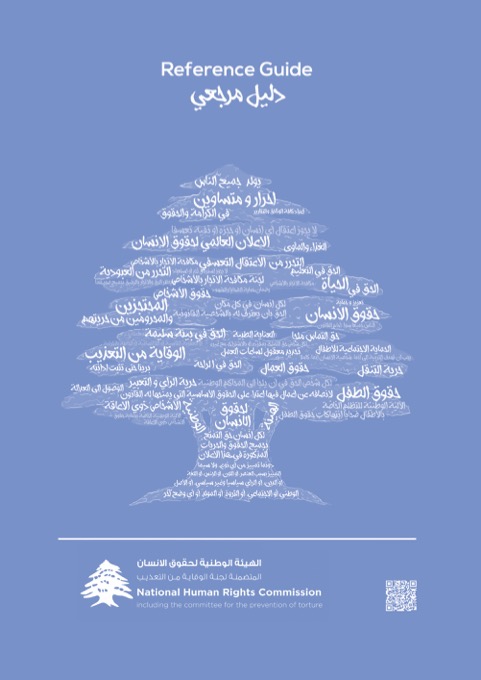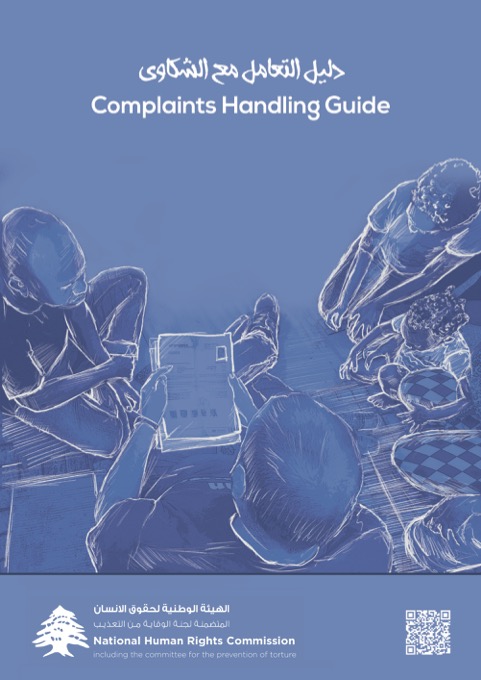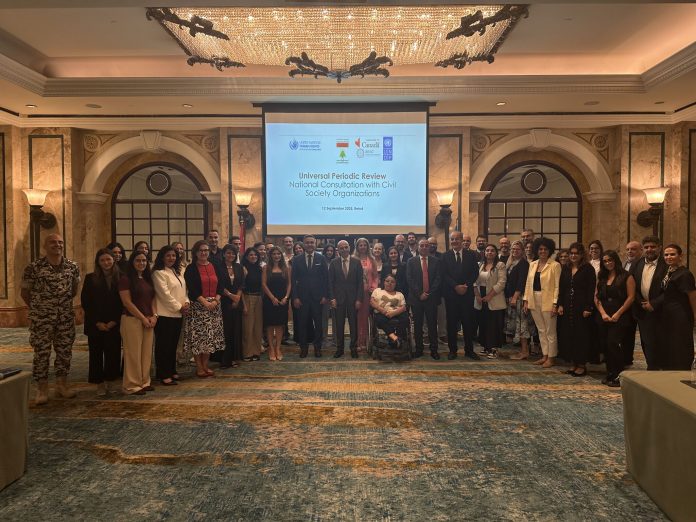As part of our engagment to prepare Lebanon’s Fourth Universal Periodic Review (UPR) Report 2025/2026, the National Human Rights Commission, including the Committee for the Prevention of Torture (NHRC-CPT), in close coordination with the Government of Lebanon and the Regional Office of the United Nations High Commissioner for Human Rights (OHCHR), took part in the expanded National Consultation convened at at the Phoenicia Hotel, Beirut. in Beirut on 12 September 2025.
This milestone consultation gathered key actors, including the National Mechanism for Reporting, Implementation and Follow-up (NMRF), the National Human Rights Commission, which includes the Committee for the Prevention of Torture, the National Commission for Lebanese Women, the National Commission for the Missing and Forcibly Disappeared Persons, alongside a wide range of civil society organizations (CSOs).
In fulfillment of its mandate as Lebanon’s National Human Rights Institution, the National Human Rights Commission including the Committee for the Prevention of Torture – (NHRC-CPT), submmited it report to the UPR procedure regarding Lebanon to the UN Human Rights Council.
Keynote Speech: Dr. Fadi Gerges, President of NHRC-CPT
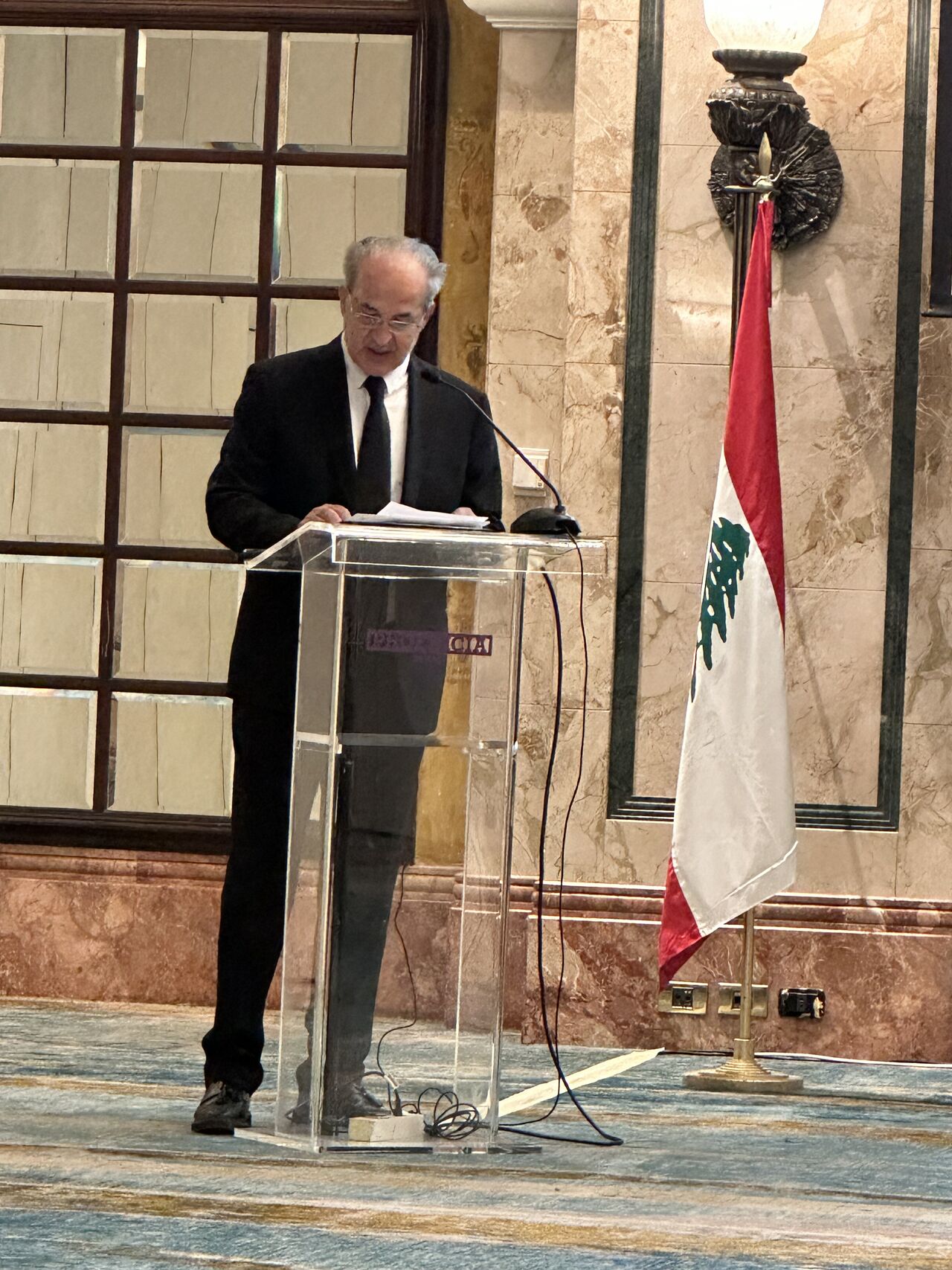
In his remarks, Dr. Fadi Gerges, President of the NHRC-CPT, stressed that the Commission, as Lebanon’s independent National Human Rights Institution and designated National Preventive Mechanism, continues to face serious institutional and financial challenges. Despite the enactment of Law 62/2016, which established the Commission, the Government has yet to adopt the five essential regulatory decrees needed to ensure its full independence and effective functioning.
Dr. Gerges highlighted several priority concerns for Lebanon’s fourth UPR cycle:
-
Institutionalization and Independence: The urgent need for the Government to adopt all outstanding decrees, provide sufficient resources, and guarantee the Commission’s autonomy in line with the Paris Principles. Without this, Lebanon risks undermining the credibility of its national human rights system and its ability to secure “A” status with GANHRI.
-
Torture and Prison Conditions: The Commission’s findings from monitoring more than 200 detention facilities revealed systemic violations, including overcrowding, corruption, and lack of medical care. Dr. Gerges reiterated the need to amend Law 65/2017 to align with international standards and ensure that no exceptional circumstances can justify torture.
-
Rule of Law and Accountability: Lebanon’s prolonged delay in activating its National Mechanism for Implementation, Reporting, and Follow-up (NMIRF) has undermined its ability to engage with international mechanisms. He urged the Government to reactivate the mechanism, fulfill overdue reporting obligations, and adopt a legally binding National Human Rights Action Plan.
-
Impact of Israeli Aggression: Dr. Gerges denounced the grave violations of international human rights and humanitarian law committed during Israel’s military operations in 2023–2024, including targeting civilians, journalists, and healthcare facilities. He called for the establishment of an independent international investigation mechanism and for Lebanon to reverse its withdrawal of recognition of the International Criminal Court’s jurisdiction.
He concluded by affirming that the UPR must serve as a central instrument for shaping Lebanon’s human rights policy and that meaningful participation of civil society and independent institutions is indispensable to the credibility of this process.
The 12 September event featured thematic interventions from national institutions and CSOs covering rule of law and justice, freedom of expression and religion, gender and child rights, economic and social rights, people with disabilities, and migration.
In his remarks, OHCHR Regional Representative emphasized that the UPR process is not only a reporting exercise but also an opportunity to foster dialogue, reinforce accountability, and build stronger State–civil society partnerships for the promotion and protection of human rights in Lebanon.
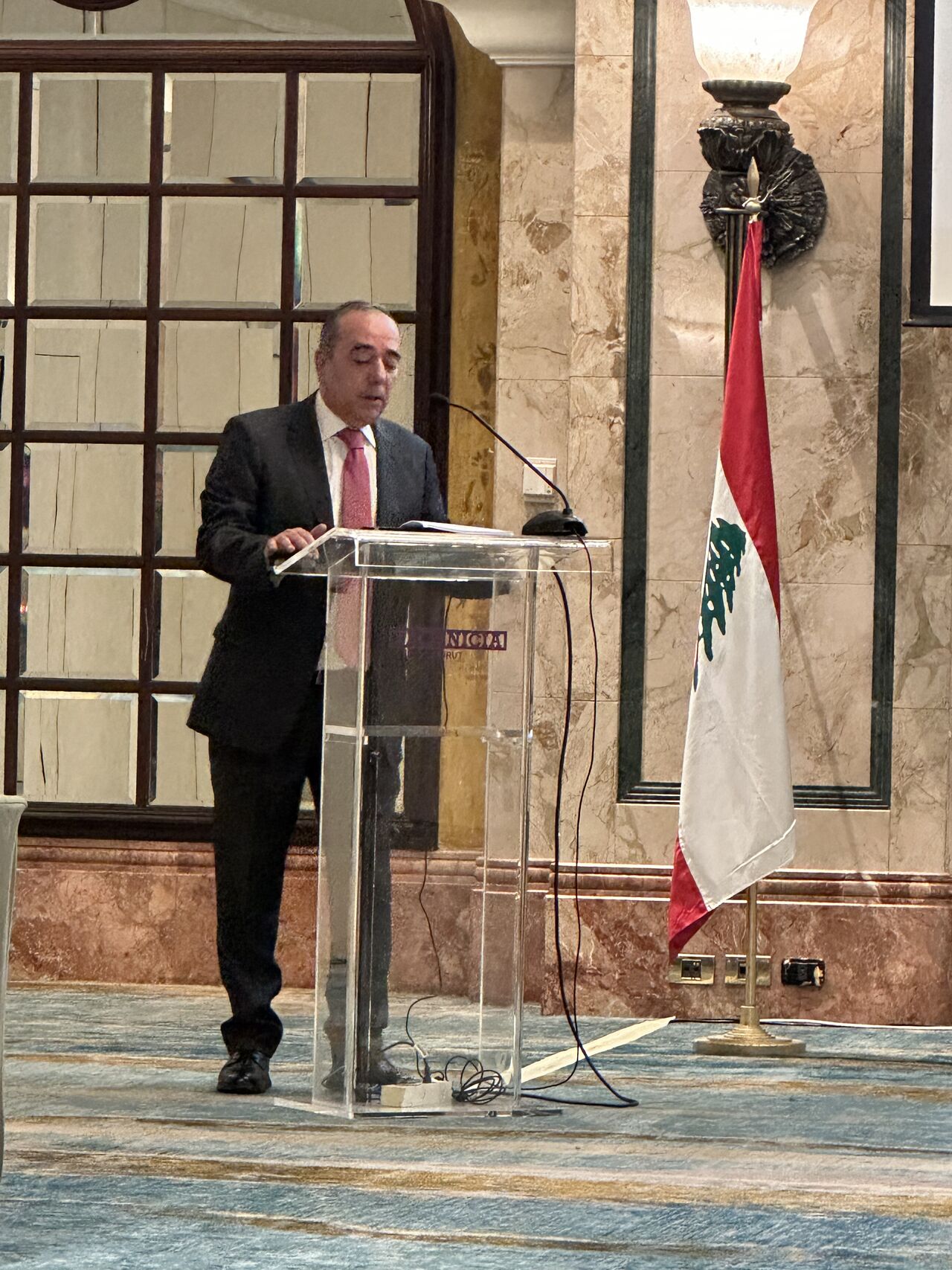
هذه المقالة متاحة أيضًا بـ: العربية (Arabic) Français (French)
